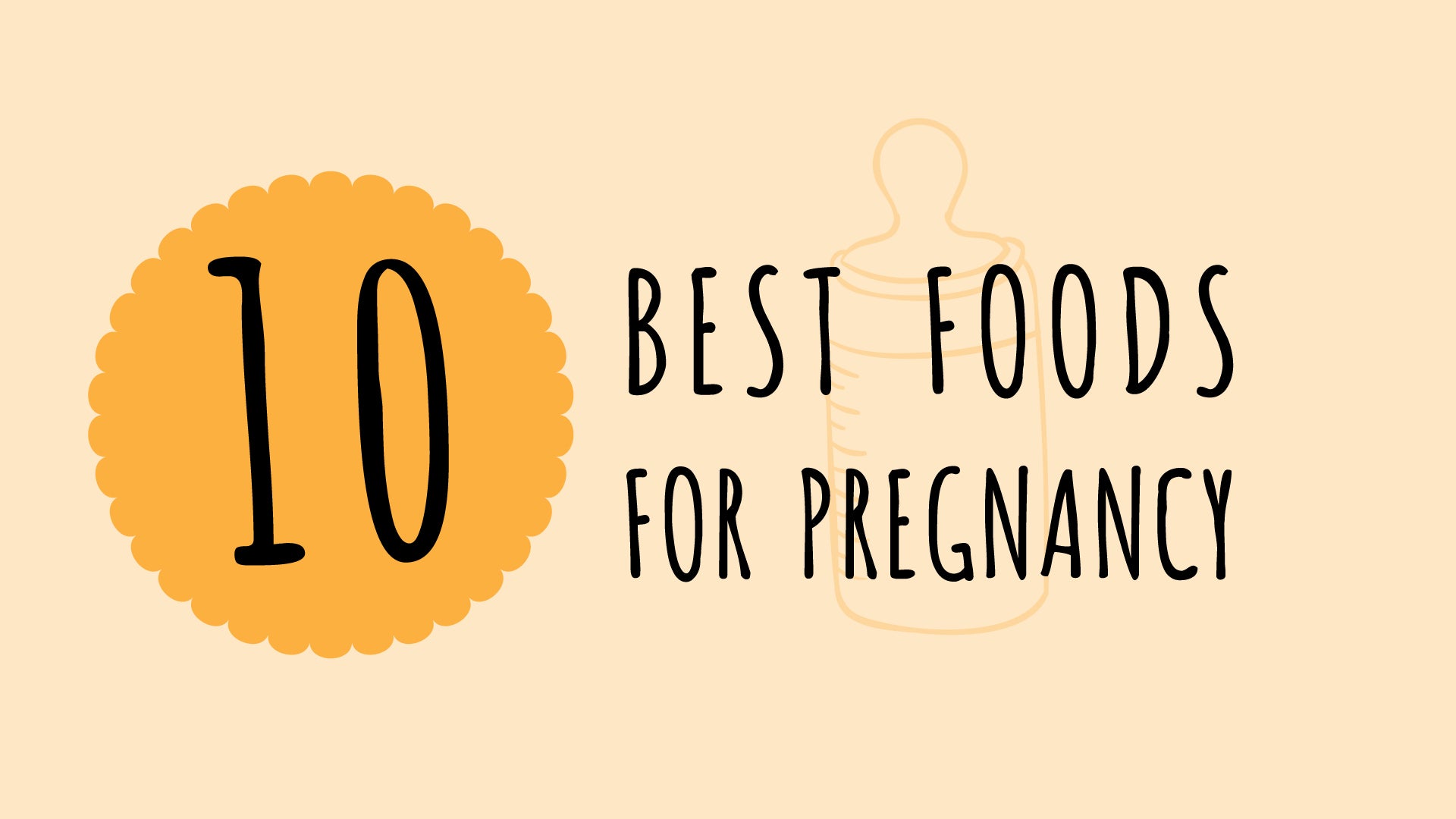Time for some good news and we sourced this article to help you make the right choices during your pregnancy.
There is always information about the bad stuff which can be found here.

Figuring out what to eat when you're eating for two can be confusing. Our list of the top 10 foods for pregnant moms and healthy recipes for pregnant women can help.
And here's a bonus: Babies exposed to a variety of healthy food in the womb are more likely to recognize and accept those flavors later on.

Eggs
Eggs are a great source of protein, a crucial part of your pregnancy diet. The amino acids that make up protein are the building blocks of the cells in your body – and your baby's.
Eggs also contain more than a dozen vitamins and minerals, including choline. Choline helps your baby's brain and spinal cord develop properly, and helps prevent neural tube defects.
Combine eggs with whatever veggies and cheese you have on hand and you'll have the makings of a frittata. Leftovers – if there are any! – are perfect for breakfast the next day.
Recipe: Frittata with chard, red onion, and feta
Video: How to make a frittata with vegetables and goat cheese

Salmon
Omega-3 fatty acids are crucial for your baby's healthy development, and might even boost your mood. Salmon is an exceptionally good source.
Salmon is a low-mercury option for the 8 to 12 ounces of seafood pregnant women are encouraged to eat each week. Find out more about eating fish safely during pregnancy.
Recipe: Pan-seared salmon with lentils and leeks
Video: How to make salmon with baby leaf and tomato salad

Beans
Beans are a good source of protein and an excellent source of iron, folic acid, potassium, magnesium, and essential fatty acids – all important for you when you're pregnant.
They're also a great food for fiber, which can help prevent and relieve two common pregnancy discomforts: constipation and hemorrhoids.
Recipe: Black bean and sweet potato tacos with avocado
Recipe: Creamy white beans with sausage, broccolini, and bread crumbs (extra easy, thanks to canned beans)

Sweet potatoes
Sweet potatoes get their orange color from carotenoids, plant pigments that are converted to vitamin A in our bodies. They're also a great source of vitamin C, folic acid, and fiber.
Recipe: Curried chickpea and sweet potato turnovers
Recipe: Baked sweet potato fries (not just for kids!)

Whole grains
Whole grains are high in fiber and nutrients, including the antioxidant vitamin E and the mineral selenium. They also contain phytonutrients – plant compounds that protect cells. Sample different kinds, from barley and buckwheat to oats and spelt.
Recipe: Grilled pork tenderloin with barley and dried apricots

Walnuts
Walnuts are one of the richest sources of plant-based omega-3s. They're also a good source of protein and fiber. Grab a handful of walnuts for an on-the-run snack or toss some into a salad.
Video: How to make a nutty version of overnight oats

Greek yogurt
Greek yogurt typically has twice the protein of regular yogurt. Plus, it's a great source of probiotics and calcium. Calcium helps keep your own bones strong and contributes to the growth of a healthy skeleton for your baby.
Yogurt is a versatile breakfast ingredient and a wonderful addition to savory dishes too.
Video: How to make homemade granola to go with your Greek yogurt
Recipe: Roasted cauliflower steaks with herbed yogurt (Note: Roasting this cruciferous vegetable has been known to win over cauliflower skeptics.)

Dark leafy greens
Spinach, kale, Swiss chard, and other dark leafy greens are prenatal superfoods, loaded with vitamins and nutrients, including vitamins A, C, and K, as well as folic acid.
It's easy to up the amount of greens in your diet. Just chop them coarsely and toss into smoothies, soups, omelets, or stir-fries. See our recipes for comfort food and a sweet and satisfying salad starring these healthy veggies.
Recipe: Chicken and biscuits with Swiss chard

Lean meats
Meat is an excellent source of high-quality protein. Look for cuts that are around 95 to 98 percent fat free. Beef and pork get extra points for also containing choline.
Skip deli meats and hot dogs, though, unless they're heated until steaming hot. There's a small risk of infection from bacteria and parasites such as listeria, toxoplasma, or salmonella, which can be dangerous during pregnancy for you and your baby.
Recipe: Steak fajitas with peppers and onions, featuring flank steak, a lean and flavorful cut of beef
Video: How to make beautifully seared pork chops with corn salad

Colorful fruits and veggies
Eating plenty of green, red, orange, yellow, and purple fruits and vegetables helps you and your baby get a variety of nutrients. Each color group provides different vitamins and minerals.
Buying or considering buying organic produce but concerned about cost? Check our "dirty dozen" list of 12 fruits and vegetables that might be worth the extra money because they have the most pesticide residue.
Salads are an easy way to combine colorful fruits and vegetables.
Video: How to make strawberry and asparagus salad
Recipe: Asian chicken meatballs with soba noodles and sugar snap peas

